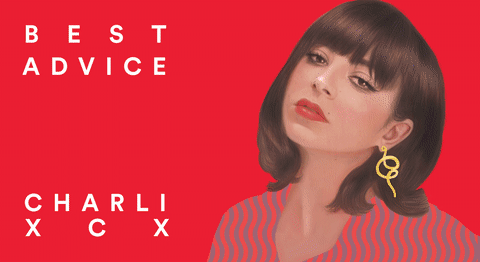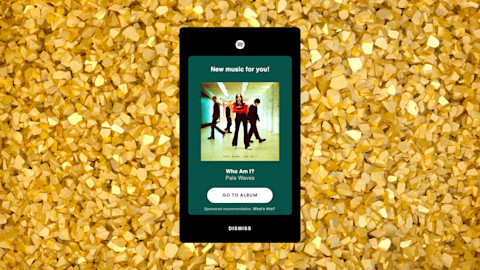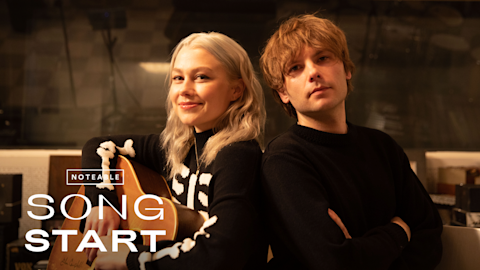As he debuts his ambitious new project, Kind Heaven, he reveals his philosophy about getting better with age.
What did you do for your dad’s 60th birthday? Maybe you took him to a sporting event, booked the big table at his favorite local steakhouse, or put together a laptop slideshow of funny old photos. Well, Perry Farrell doesn’t do 60 like your average dad. When the Jane’s Addiction frontman hit that milestone in March, he flew down to Santiago for the Chilean edition of his Lollapalooza festival, feasted on a backstage spread of edibles (after which he “hadn’t felt so stoned since when I first got stoned”) and then followed it up with a booze cruise around the Galapagos Islands, where he went snorkeling, kayaking, and hiking alongside iguanas and penguins. “Sixty only comes around once,” he says over the phone from his home in Santa Monica Canyon, California. “You’ve got to do it right.”
But for Farrell, that was all just a warm-up. The real party begins this summer with the unveiling of Kind Heaven, an ambitious new project that’ll debut with Farrell’s new album. Kind Heaven is also an amorphous all-star musical collective (featuring Foo Fighters’ Taylor Hawkins, The Cars’ Elliot Easton, Dhani Harrison, and Farrell’s wife, Etty), and an interactive multimedia experience set to open in Las Vegas in 2020. Musically, it owes less to the moshable alt-rock of Jane’s Addiction than to Farrell’s eclectic curatorial approach to Lollapalooza. Listening to the record feels a lot like hopping from stage to stage at a festival, with British Invasion-style garage rock (“Cheerfulness”) and industrial new wave (“Machine Girl”) over here, jazzy cabaret (“Snakes Have Many Hips”) and strobe-lit EDM (“Spend the Body”) over there.
But like the apocalyptic premonitions of Jane’s Addiction’s Ritual De Lo Habitual or the L.A.-riots backdrop of Porno for Pyros, Kind Heaven finds Farrell once again translating the chaos of our world into defiantly absurdist, celebratory music. Now nearly four decades into the game, his more damaging habits long ago replaced by his fervent embrace of Jewish spirituality, Farrell says he’s “never been so busy,” and that his appetite for seeking out new bands is as voracious as ever. Here, he explains why, for him, making music never feels like just another habitual ritual.
Spotify for Artists: At an age when many artists would be content to just coast into the nostalgia-tour circuit, what inspires you to keep changing it up and challenging yourself?
Perry Farrell: I tell ya man, being a musician is the best gig. We can get better with age. We learn to appreciate silence. When you’re a younger person you just tend to spew and spew and spew, but as you get older, you refine, and you learn that the absence of notes is also musical. And you see the world differently—you gain wisdom and you can then impart that wisdom in song. That’s why I keep going. The thought of moving to an island or a mountain sounds appealing for about five seconds. And then I start thinking: That would mean I wouldn’t be performing for anybody, and that starts to sound like a bad idea, no matter how much money I’ve made in my lifetime. Money is nice, but it will never replace human interaction and celebration and the joy that you experience when you’re singing and dancing and performing with people. The act of singing and playing music is so therapeutic for your soul. So I guess that’s my inspiration: I’m always looking to feel good. I even ask myself minute-to-minute, “How are you feeling? Wouldn’t you like to feel better?” I think that’s partly why I was a drug addict. But there was one constant that would always make me feel better—that’s when I would sing and dance and be around people and be social. As you mentioned, I turned 60, but I still look forward to Lollapalooza every year. Not only to perform at, but to see other people singing and playing music. I’m just hot for it! That’s become my addiction: learning about new bands and artists.
How do you discover new music? Do you still go to record stores?
I’m not going to record stores, but I talk to people that I think have good opinions and that are in the know. And I love going onto YouTube and seeing the artist. This might sound shallow, but it is really helpful if the artist has style—I want somebody that’s sexy or wild-looking or at least interesting-looking. I always think that being stylish is a must if you’re going to be a musician, especially one who performs live. It just helps make the music go down better, like a glass of milk with a cookie.
But what often happens now is a new artist will get a lot of buzz from a track they made on their computer at home, and then they’re thrust onto a stage before they’re ready.
Young artists need to get out in front of an audience. That’s why I love the idea of Lollapalooza. My first concert was playing, I’m not kidding you, in front of a hot-dog stand in Hollywood. I asked the guy if my band could play there, and I would attract a bunch of people that would buy hot dogs. I only had three friends that came to that concert. I wish to god that was up on YouTube! But this was like 1982, before the internet—nobody had cell phones, nobody had cameras in their hands. There are very few photographs of my first band, Psi Com. But occasionally, when somebody does send me one, it’s like a miracle. I just can’t believe it. I wish that I would’ve been more into documenting things.
Your music has always veered into topical territory, but does it feel any different making music for this day and age? Or do you feel like the world’s always been crazy, and this is just what you do?
Yeah—an artist reflects, that’s all they can do. If he or she sees something that titillates and excites them, it draws them in and then they put it back out there through their art. It’s such a trippy time we’re living in now, because I think that everybody has, innately in their soul, this desire to be recognized and remembered. That’s why we take pictures, that’s why we write and sing. And now we’ve got this apparatus, this cell phone, that allows you to take a picture and record the memory. That’s why I’m never angry when people hold up their cell phone and do their selfie. It’s innate in all of us to want to keep a living record of ourselves and know that we existed, and this is what we did when we existed. And that’s just what artists do—it’s an extension of that desire.
—Stuart Berman
Popular Stories
video
How Julia Wolf Made It




